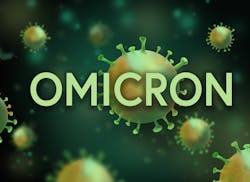FDA says monoclonal antibody treatments are not authorized for use against Omicron
The U.S. Food and Drug Administration (FDA) revised the emergency use authorizations (EUAs) for two monoclonal antibody treatments — bamlanivimab and etesevimab (administered together) and REGEN-COV (casirivimab and imdevimab) — to limit their use to situations in which the patient is likely to have been infected with or exposed to a variant that is susceptible to those treatments.
As Patrizia Cavazzoni, MD, Director of the FDA’s Center for Drug Evaluation and Research, explained, “Because data show these treatments are highly unlikely to be active against the Omicron variant, which is circulating at a very high frequency throughout the United States, these treatments are not authorized for use in any U.S. states, territories, and jurisdictions at this time.”
Currently, more than 99% of U.S. COVID-19 cases are from the Omicron variant, Cavazzoni said, citing data from the Centers for Disease Control and Prevention (CDC).
Cavazzoni also noted that the COVID-19 Treatment Guidelines Panel, which is an independent group of experts at the National Institutes of Health (NIH), recently recommended against the use of bamlanivimab and etesevimab (administered together) and REGEN-COV (casirivimab and imdevimab).
But there are treatments with FDA EUAs for use against COVID-19, including cases stemming from Omicron. For example, the FDA has authorized Paxlovid, sotrovimab, Veklury (remdesivir), and molnupiravir to treat patients with mild-to-moderate COVID-19 who are at high risk for progression to severe disease, including hospitalization or death, Cavazzoni noted.

